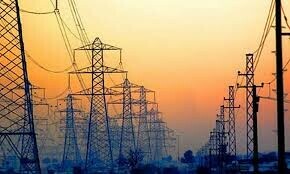JAKARTA: Once a home for oil and gas companies such as American giant Chevron, the country’s largest crude oil producer, Sumatra Island is now packed with multifaceted problems from licensing to illegal tapping that may turn off potential investors.
In particular, the southern part of the largest island in Indonesia, which includes South Sumatra province, Jambi, Lampung, Bengkulu and Bangka-Belitung, is highlighted as the region with the most setbacks faced by oil and gas contractors.
“All related parties must work together to solve the problems faced by the upstream oil and gas players because this is related to state assets,” Tirat Sambu Ichtijar, the southern part of Sumatra chief for the oil and gas regulator SKKMigas, said over the weekend.
Currently, according to data from SKKMigas, 80 oil and gas contractors have their operations in the southern part of Sumatra, including 43 contractors entering the production stage and 37 others still in the exploration phase.
In total, the region alone produces a total of 103,000 barrels of crude oil per day (bpd) and 2.03 million metres standard cubic feet per day (mmscfd). The data show the region covers around 12 per cent of the total oil output of Indonesia, a former Southeast Asian member of the Organisation of the Petroleum Exporting Countries (Opec).
“It shows that the crude oil production from the southern part of Sumatra is quite significant to contribute to the total country’s oil output,” said Tirat.
Oil facilities on Sumatra, however, have been continuously disrupted by rampant cases of illegal tapping, in addition to problems related to land acquisitions and other mining licenses faced by petroleum companies.
On account of the most recent case, state-owned oil and gas company PT Pertamina the country’s second-largest crude oil produce has been forced to suspend operations at its 260-kilometre Tempino-Plaju pipeline in Sumatra after experiencing losses of 280 billion rupiah (US$27.3 million) this year due to what the company described as “well-organised illegal tapping operations”.
As of mid-September this year, according to Pertamina data, at least 640 oil theft cases occurred at its facility in Sumatra. The company estimates around 1,000 to 2,500 barrels of crude oil lost per day due to oil theft.
“This situation obviously caused state losses. On the other hand, it also provides uncertainty toward the investor,” Lelin Eprianto, vice president of health, safety, security, and environment of Pertamina EP, said.
Other oil and gas companies also faced obstacles in their working operations in Sumatra.
China’s PetroChina encountered problems in Jambi when local officials of Tanjung Jabung Timur district sealed 14 of the firm’s oil wells following disagreements over the contractor’s licensing in the region.
Similarly, local company PT Sele Raya could not continue a plan to drill seven wells at its Merangin Dua Block in South Sumatra following land acquisition problems.
The firm has invested $100 million in Merangin Dua since it started to develop the block in 2003.
“We need a conducive, favourable investment climate to continue our upstream petroleum activities here. In addition to reducing oil and gas output, delays in our operations may decrease the desire from investors to put their money in Indonesia,” Eddy Tampi, Sele Raya chairman, said.
The government currently advises oil and gas contractors to explore the eastern part of the archipelago, particularly in deep water areas, to unearth new hydrocarbon reserves as output from the western part of the country continues to decline.
In 2008, Indonesia produced 975,000 bpd on average, much lower than the 1.6 million bpd it produced on average in 1995 due to aging fields, according to data compiled by the Indonesian Chamber of Commerce and Industry (Kadin)
Last year, Southeast Asia’s largest economy produced 860,000 bpd on average. Natural gas production also showed a declining trend, as output last year stood at 8,143 mmscfd or a 12.8 per cent decline from production back in 2010 at around 9,336 mmscfd.
– By arrangement with the ANN/The Jakarta Post –














































Dear visitor, the comments section is undergoing an overhaul and will return soon.